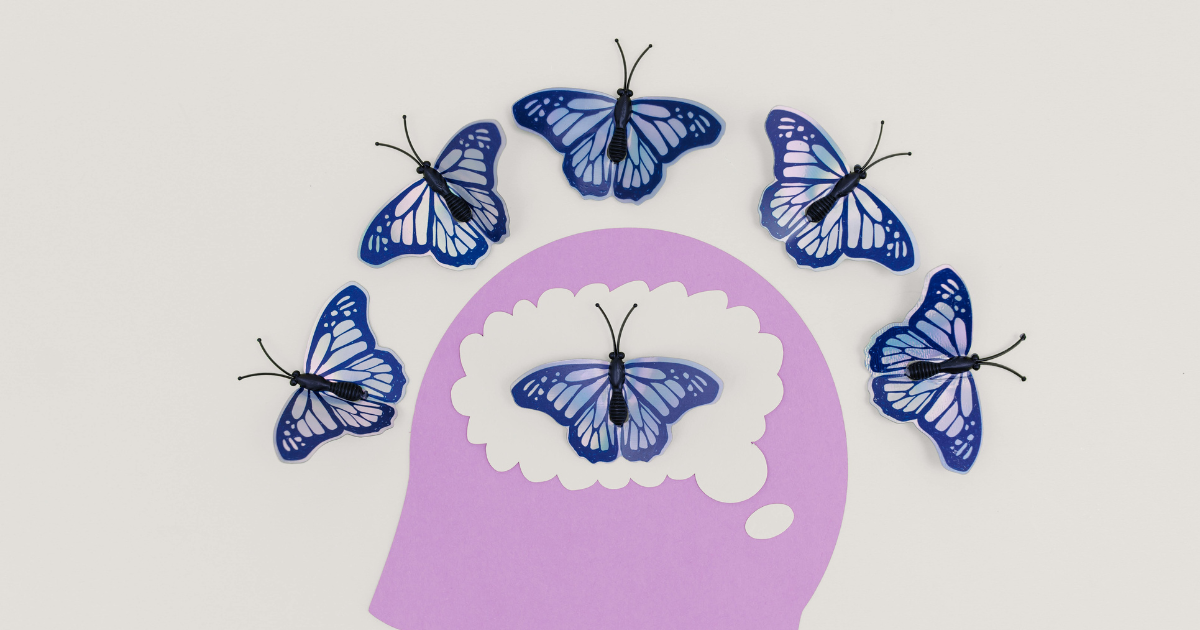So, you’re thinking about stopping Buspar? Maybe it’s just not working like it used to, or you and your doctor agreed it’s time to try something new. Whatever the reason might be, here’s the truth. Quitting Buspar isn’t as simple as skipping your next dose. Your brain has gotten used to this medication over time.
Because of this, you might experience Buspar withdrawal symptoms. This article will discuss what’s actually happening during this time, how you might feel, and most importantly, how to make the entire process less uncomfortable.
Understanding Buspar and Its Discontinuation
Buspar, or buspirone, is a common anti-anxiety medication. It doesn’t give you the instant calm that drugs like Xanax or Ativan do. Instead, it works more gradually. That’s one reason doctors like prescribing it. It’s steady, non-addictive, and a bit easier on the system overall.
But here’s the thing – even though Buspar is more subtle, your brain still notices when it’s gone. You might not expect it to, but it does.
Buspar increases the activity of serotonin in the body, and serotonin is a neurotransmitter that helps with mood and calmness. When you stop taking Buspar, especially without easing off slowly, your brain instantly notices a reduction in serotonin.
And during this period, you might not feel great. Usually, headaches, weird tiredness, and anxious feelings creep back in. Some people even say the anxiety feels worse than before they started the medication.
Touchstone Recovery Center
Recognizing Buspar Withdrawal Symptoms
If you’re about to stop Buspar or just starting to taper off Buspar, it really helps to know what kind of symptoms might pop up. Even though these symptoms might not be severe, the adjustment still hits some people harder than expected.
Let’s walk through some of the common symptoms people feel.
Emotional and Psychological Effects
No, you’re not imagining it. The emotional shift can be surprisingly strong. A lot of people report feeling weirdly numb or like their feelings are bouncing around inside their heads.

Some of the emotional Buspar withdrawal symptoms might include:
- Mood swings (you might feel happy one moment and irritated the next)
- Buspar rebound anxiety – where your old anxiety comes knocking again
- Trouble focusing or following thoughts clearly
- Feeling emotionally blank, or just weirdly “off”
It’s frustrating. But also temporary.
On top of this, you might experience physical symptoms too. Here are a few common ones:
- Random headaches
- Muscle soreness or tension
- Nausea, especially in the morning
- Feeling dizzy or wobbly
- Deep fatigue that seems to come out of nowhere
So yes, both your brain and your body are doing a little “reboot,” and you might feel it more than you expected.
What Causes Buspar Withdrawal?
Here’s a quick refresher – Buspar works by gently increasing serotonin levels. Not dramatically, but enough that your brain comes to depend on that support. Serotonin handles a lot more than just mood, it impacts sleep, focus, and even your appetite.
Even though Buspar isn’t a strong antidepressant, it still alters your brain chemistry. And when you take it away, your brain has to find its own rhythm again, which doesn’t happen overnight.
So, during Buspar discontinuation, your system is scrambling to fill in the gaps, and that’s where the withdrawal symptoms come in.
Let’s break this down a bit more:
| What’s Happening | Why You Feel It |
| Serotonin drops off suddenly | Mood dips, anxiety spikes |
| No more daily medication bump | Fatigue, nausea, foggy thinking |
| Brain in transition mode | You feel emotionally “off,” maybe flat |
Your body’s trying to rebalance everything. It might find it difficult at first. But it does get there, eventually.
The Buspar Withdrawal Timeline: What to Expect
This is probably what you’re wondering: how long is this going to last?
Unfortunately, there’s no single answer. Some people barely feel anything. Others? They’re in for a bumpy few weeks. But here’s a general look at the Buspar withdrawal timeline:
| Timeline | What You Might Feel |
| Days 1–3 | Mild headache, grogginess, foggy thoughts |
| Days 4–7 | Mood gets a little shaky, anxiety may increase |
| Week 2+ | Usually improving, but some stuff can still linger |
If you taper off Buspar slowly, chances are this whole process will be a lot smoother. But if you stop suddenly? You’re more likely to feel all of it. So tapering is recommended.
Effective Coping Strategies for Buspar Withdrawal
Let’s talk about what you can do to make things better. First and foremost: remind yourself it’s temporary. This isn’t your new normal, it’s just your brain hitting reset.
Managing Rebound Anxiety and Mood Swings
Buspar rebound anxiety is real, and it doesn’t mean your anxiety’s “back for good.” It just means your brain is looking for the support it used to get
A few things you can try:
- Stick to a steady routine. Your nervous system loves knowing what to expect.
- Skip caffeine and alcohol; they both alter your mood.
- Talk to someone. This could be a therapist or someone you trust.
- Try mindfulness, deep breathing, or guided meditation which works to calm your nervous system.
Tapering Off Buspar Safely
After reading about all those Buspar withdrawal symptoms, you’re probably wondering if there’s a way to sidestep some of the rough patches. And yes, there is. It’s called tapering off Buspar.

Tapering means slowly reducing your dosage instead of stopping all at once. That gives your brain a little breathing room to catch up and adjust bit by bit.
Here’s a brief idea of how a taper might go:
- Week 1–2: Cut down your current dose by 25%
- Week 3–4: Drop another 25%
- Week 5–6: Lower to the smallest possible amount, then stop completely
But heads up, don’t try to make this plan on your own. Talk to your doctor. Everybody’s situation is different, and your doctor might suggest a different speed based on how long you’ve been taking it, your current dose, or how sensitive your system is.
A proper taper can really make a difference in your Buspar withdrawal management plan. Going slow might seem annoying, but it’s always better than being hit with a bunch of symptoms all at once.
Touchstone Recovery Center
Lifestyle Tips for a Smoother Recovery
You don’t need to completely change your life to feel better, but a few simple habits can help take the edge off while you’re recovering from Buspar cessation effects. Think of these as little ways to support your brain while it figures things out again.
Here are some tips:
- Eat brain-friendly meals. Greens, eggs, salmon, and avocados. All those nutrients help with neurotransmitter balance.
- Hydrate. Dehydration means worse headaches, sluggishness, and brain fog. Don’t make it harder on yourself.
- Move your body daily. It doesn’t need to be intense. A walk counts. A dance party in your room counts.
- Prioritize rest. Your brain heals while you sleep, so get as much rest as possible.
- Protect your peace. Say no to extra drama. This isn’t the time for emotional chaos.
Let’s organize some of this in a simple table:
| What to Add | Why It Helps |
| Spinach, nuts, fish | Fuels serotonin and supports brain function |
| Short daily walks | Boosts mood and energy, lowers tension |
| Good sleep habits | Helps your system rebalance |
| Low screen time at night | Encourages better sleep quality |
And a quick reminder: give yourself grace. This isn’t a failure. You’re not doing anything wrong. Your body’s just doing its best to find equilibrium. Healing isn’t a straight line, and that’s okay.
Seek Professional Help at Touch Stone Recovery Center
Trying to go through Buspar withdrawal solo? It can feel like too much. Even if you’ve done everything “right,” the mood swings, exhaustion, or weird emotional dips might catch you off guard. One day you’re okay, and the next, everything feels impossible.
That’s where having some professional support, like the team at Touch Stone Recovery Center, can make all the difference.
We’re not here to rush you, judge you, or hand you a one-size-fits-all solution. What we do offer is personalized care, compassionate professionals, and a solid plan tailored to your situation. We walk with you, step-by-step, so you’re not guessing or struggling alone.
Whether you’re early in your Buspar withdrawal timeline or deep in the middle of it, there’s help. Contact Touch Stone Recovery Center today.
FAQs
How long does Buspar withdrawal last?
It varies. Some people feel fine after a few days, others need a few weeks. It depends on how long you were taking Buspar, your dose, and how your body handles the change.
Can I stop Buspar cold turkey?
You technically can, but we don’t recommend it. Going cold turkey can bring on stronger Buspar withdrawal symptoms like irritability, anxiety, or brain fog. A gradual taper is a much safer approach.
What are the most common withdrawal symptoms?
People usually report fatigue, anxiety, stomach issues, and headaches. Buspar cessation effects can also include mood changes and trouble sleeping.
Will my anxiety come back when I stop Buspar?
It might, but it’s not necessarily permanent. What you’re feeling could be Buspar rebound anxiety, which is just your brain readjusting. With time and support, it usually settles.
Touchstone Recovery Center
Do I need medical supervision to stop taking Buspar?
It’s not legally required, but it’s highly recommended. A healthcare provider can guide your Buspar withdrawal management plan and help spot any issues early on.







